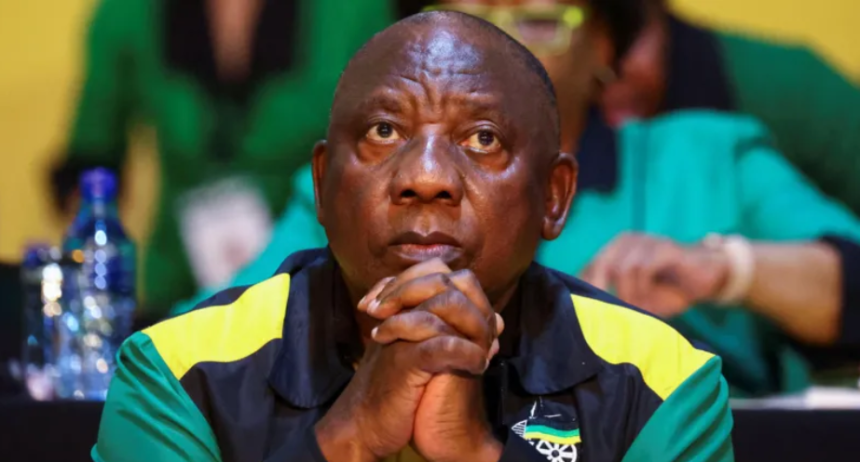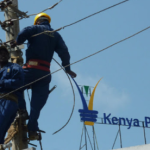South Africa’s President Cyril Ramaphosa has acknowledged that his African National Congress (ANC) party faced a challenging election result, as the party lost its parliamentary majority for the first time since the end of apartheid 30 years ago.
The ANC, once led by Nelson Mandela, secured 159 seats in the 400-seat parliament in Wednesday’s election, a significant drop from the 230 seats it held in the previous assembly.
Despite the setback, Ramaphosa described the results as a victory for democracy and urged rival parties to find common ground, signaling his readiness for coalition talks. The opposition Democratic Alliance (DA) party expressed openness to coalition discussions with Ramaphosa, though it opposes several of his government’s key priorities.
The electoral commission announced on Sunday that with all votes counted, the ANC garnered 40% of the vote, a sharp decline from the 58% achieved in the previous election.
Analysts noted that this result was even lower than the party’s feared worst-case scenario of 45%. Consequently, the ANC must now enter into a coalition to form the next government.
Our people have spoken, whether we like it or not, they have spoken,” Ramaphosa said.
“As the leaders of political parties, as all those who occupy positions of responsibility in society, we have heard the voices of our people and we must respect their wishes.”
He added that the voters wanted the parties to find common ground.
“Through their votes, they have demonstrated clearly and plainly that our democracy is strong and it is enduring,” he said.
South Africa’s political parties have two weeks to work out a coalition deal, then the new parliament will sit to choose a president.
The center-right DA remains the second-largest party in parliament with 87 seats, and has said it is open to talks of a coalition.
“We urge all others who love our constitution and all it represents to set aside petty politics and narrow sectarian interests and join hands now,” DA leader John Steenhuisen said.
South Africa’s President Cyril Ramaphosa faces significant challenges following the ANC’s loss of its parliamentary majority for the first time since apartheid ended 30 years ago. While the ANC secured 159 seats in the 400-seat parliament, down from 230 previously, Ramaphosa framed the results as a democratic victory and called for cooperation among rival parties, signaling his openness to coalition talks.
However, the opposition Democratic Alliance (DA) opposes two of the ANC’s key priorities: black empowerment policies aimed at giving black people a stake in the economy, and the National Health Insurance (NHI) Bill, which promises universal healthcare for all. The ANC has declared these policies non-negotiable in coalition talks.
Former president Jacob Zuma, who now leads the Umkhonto weSizwe (MK) party that came third with 58 seats, did not attend the results announcement and suggested he might challenge the outcome.
The MK party indicated willingness to collaborate with the ANC but not under Ramaphosa’s leadership. Zuma, replaced by Ramaphosa in 2018 after a bitter power struggle, has called for an election rerun and demanded that the electoral commission refrain from announcing the final results.
On Saturday, Zuma warned that ignoring his demand for a fresh election and an independent investigation into alleged electoral rigging would provoke his party.
The ANC’s ability to reinvent itself following these dismal results is now in question. Analysts and political observers are closely watching to see how the power dynamics will shift, and whether Ramaphosa can navigate the complex landscape of coalition politics.
“Don’t start trouble when there is no trouble,” he said.
There are growing concerns about how Jacob Zuma’s supporters might react to the election results. The 82-year-old former president has been a political wildcard in this election and is now positioning himself as a kingmaker in his home province of KwaZulu-Natal, where the newly formed MK party has taken a significant share of votes from the ANC.
Despite being established just a few months ago, the MK party secured 44% of the vote in KwaZulu-Natal, compared to the ANC’s 19%.
Local issues, particularly the ANC’s failure to address acute water shortages, likely contributed to this shift. In areas such as Trenance Park, just 20 minutes from Durban, residents have been without tap water for 10 months, relying instead on water tankers that often fail to deliver on time.
This dissatisfaction with the ANC’s handling of basic services has driven some community members to support the MK party.
As the election dust settles, residents of KwaZulu-Natal are hopeful that the new political landscape will lead to lasting solutions to their water problems. Meanwhile, South Africa’s police chief has issued a stern warning against any attempts to destabilize the country in response to the election outcomes, emphasizing that such threats will not be tolerated.
“There cannot be any room for threats of instability in order to register objections or concerns about the electoral processes,” Police Minister Bheki Cele said at a news conference.
The ANC has consistently polled above 50% since South Africa’s first democratic elections in 1994, which brought Nelson Mandela to the presidency. However, support for the party has been steadily declining due to widespread anger over high levels of corruption, unemployment, and crime.
Patrick Gaspard, a former US ambassador to South Africa, explained to the BBC that the “Born Free” generation—those born after the end of apartheid in 1994—feel that while their country underwent a political transformation, it did not achieve an economic one. He noted that as early as 2015, it was evident that the ANC was on a downward trajectory because it was failing to deliver essential services, including reliable electricity, highlighted by the frequent rolling blackouts.



